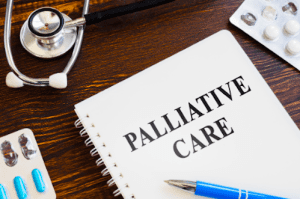
Dying Matters is a campaign run by the charity, Hospice UK. They work with organisations, decision makers and the public to make things better for people who are dying or grieving.
In a world often hesitant to confront mortality, Dying Matters Week stands as a poignant reminder of the importance of discussing end-of-life issues openly and honestly. This annual awareness week, observed across the globe, encourages conversations about death, dying, and bereavement, aiming to break the taboo surrounding these topics. Let’s delve into the significance of Dying Matters Week and why these conversations are vital.

For many, death remains a taboo subject, shrouded in discomfort and fear. However, avoiding discussions about mortality can lead to unpreparedness, leaving individuals and families grappling with difficult decisions during times of crisis. Dying Matters Week seeks to dismantle this taboo, fostering open dialogue about death and dying within communities, families, and healthcare settings.
One of the key themes of Dying Matters Week is advance care planning. This involves making decisions about the care and treatment a person would want to receive if they became unable to express their wishes in the future. By engaging in advance care planning discussions, individuals can ensure that their preferences regarding medical treatment, end-of-life care, and funeral arrangements are known and respected.
Another crucial aspect of Dying Matters Week is raising awareness about end-of-life care options and the importance of quality palliative care. Palliative care focuses on improving the quality of life for individuals facing life-threatening illnesses and their families, addressing physical, emotional, and spiritual needs. By discussing end-of-life care options openly, individuals can make informed choices that align with their values and preferences.

Dying Matters Week also emphasises the significance of supporting those who are grieving the loss of a loved one. Bereavement can be an incredibly challenging experience, and having access to appropriate support networks and resources can make a significant difference in the grieving process. By acknowledging and validating grief, communities can offer compassionate support to those who are mourning.
Death literacy, or the knowledge and understanding of death, dying, and bereavement, is a fundamental aspect of Dying Matters Week. By promoting death literacy, this initiative aims to empower individuals to make informed decisions about their end-of-life care, understand the grieving process, and engage in meaningful conversations about death and dying.
Dying Matters Week serves as a crucial reminder of the importance of open and honest conversations about death, dying, and bereavement. By breaking the taboo surrounding these topics, engaging in advance care planning, promoting quality end-of-life care, and supporting the bereaved, we can foster a culture that embraces the realities of mortality with compassion and understanding. Let us use this week as an opportunity to have meaningful conversations that truly matter.
Dying matters week is happening now from 6-12th May 2024
https://www.hospiceuk.org/our-campaigns/dying-matters/dying-matters-awareness-week
